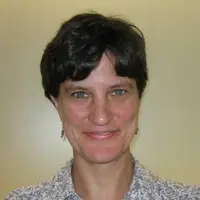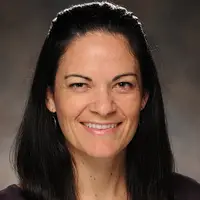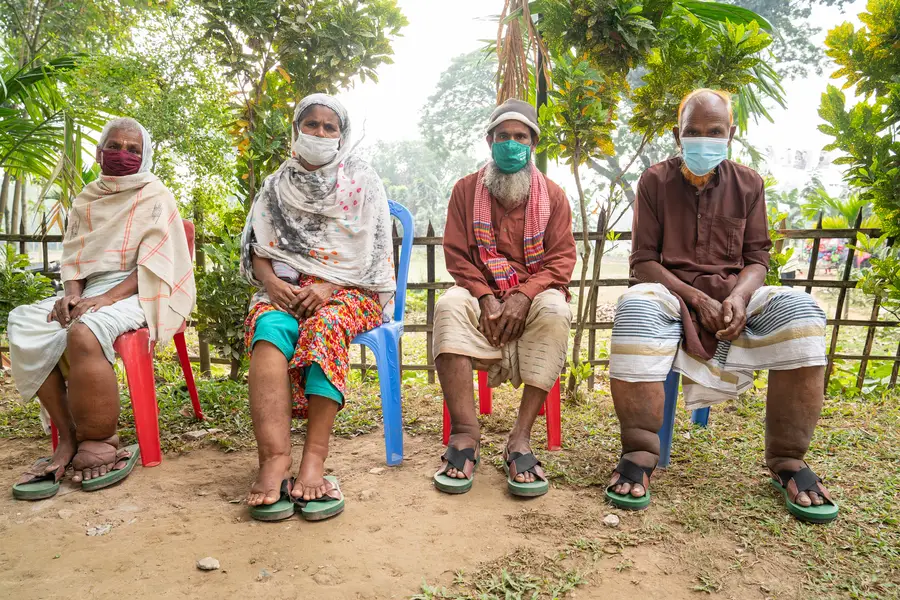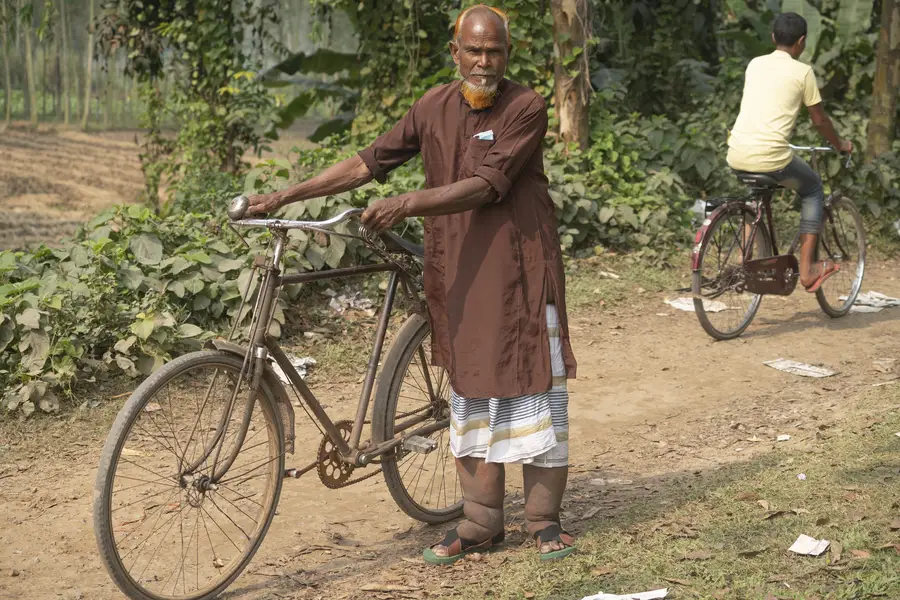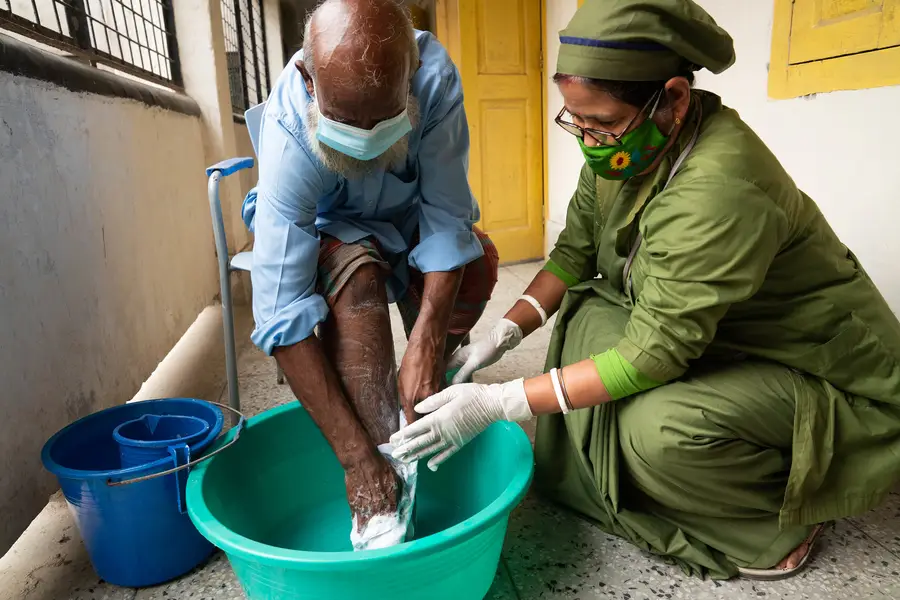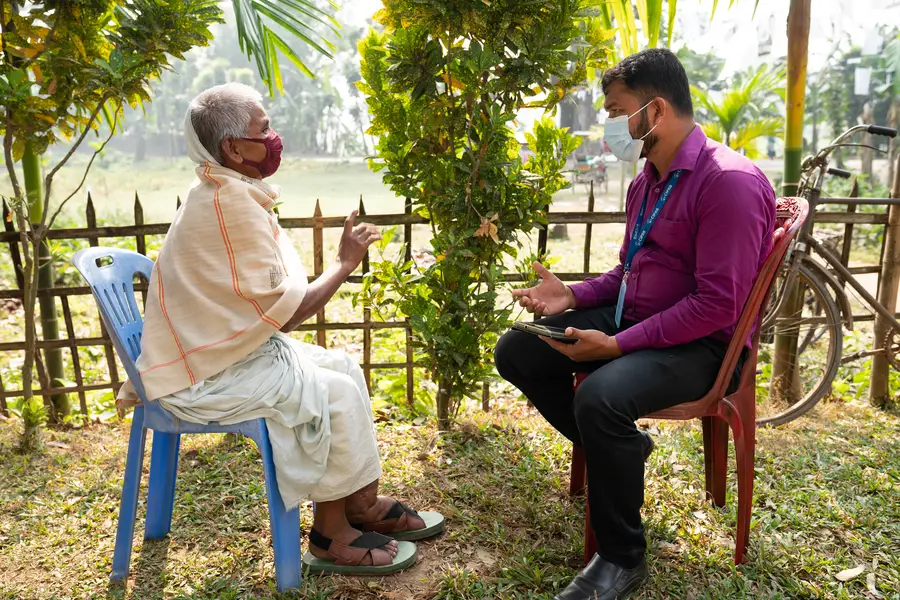Patients, including Menu Bala (far left) and Mohim Uddin (far right), wait outside of a health clinic to receive counseling and care for leg swelling caused by a neglected tropical disease. Photo credit: RTI International/ Abir Abdullah
Mohim Uddin was a young farmer in Bangladesh when he noticed his legs were becoming swollen.
“About 40 years ago I felt that my legs were swelling, I didn't understand the reason for it at the beginning,” he said. “I couldn’t do my agricultural work and was very upset.”
Patients, including Menu Bala (far left) and Mohim Uddin (far right), wait outside of a health clinic to receive counseling and care for leg swelling caused by a neglected tropical disease. Photo credit: RTI International/ Abir Abdullah
In the years that followed, Uddin struggled to manage the pain in his legs and had to stop farming. In the decades that followed the onset of the swelling, he visited numerous hospitals and clinics looking for treatment that would help him maintain a sense of normalcy in his life. Uddin, like an estimated 30,000 other people in Bangladesh, has lymphedema caused by the mosquito-borne disease lymphatic filariasis (LF).
Nursing Supervisor Rita Rani Saha teaches Rafiqul Islam how to wash and care for his swollen legs at a subdistrict health complex in Bangladesh. Photo credit: RTI International/ Abir Abdullah
Rafiqul Islam’s family came to his aid when the swelling in his leg began. His wife, Amina Begum, helps him with his care while running their household, and his son pitches in to keep up with the agricultural work he cannot do. “We all support each other,” Rafiqul said.
Menu Bala talks with a health worker about her condition and care. Photo credit: RTI International/ Abir Abdullah
Menu Bala’s family had a different response, despite her story being similar. She has suffered from swelling in her legs for the past 40 years, which initially led to some stigma amongst her family and friends. “I was humiliated by the family members and warned that no one would eat food cooked by me,” she said. After seeking care, Menu Bala learned more about LF, including that it is spread by mosquitoes, which helped clarify many misperceptions about how a person contracts the disease.
Stories like Uddin’s, Islam’s, and Bala’s illustrate the economic and social impact that LF infection can have on individuals and their families.
Fortunately, stories like these will eventually become history in Bangladesh as the country nears the elimination of LF as a public health problem, which will confirm the success of Bangladesh’s efforts in freeing nearly 40 million Bangladeshis from the risk of this neglected tropical disease (NTD) and the disfigurement and disability that comes with it.
Assessing health system readiness
LF has been endemic in Bangladesh for more than a century, and decades of work have gone into eliminating it. To receive the World Health Organization’s (WHO) stamp of approval for elimination as a public health problem, Bangladesh must eliminate the disease and ensure that health services are available to support individuals already impacted by LF in managing symptoms, such as the pain and inflammation caused by the disease and related secondary infections.
Bangladesh’s Ministry of Health and Family Welfare (MOHFW) has led national efforts to respond to LF. Since 2011, USAID has provided crucial support towards these efforts, from working with health care facilities to ensure care is available to supporting the government to document and demonstrate their successes in preparation for submission of the formal dossier to WHO.
The latest iteration of USAID’s support – the Act to End NTDs | East Program – has helped Bangladesh assess its readiness to manage ongoing LF cases through a nationwide survey of health facilities. While Bangladesh may no longer have new cases, individuals impacted by the disease in the past will still need ongoing support and care. The survey demonstrated that the health system has the capacity to provide high quality LF care beyond elimination.
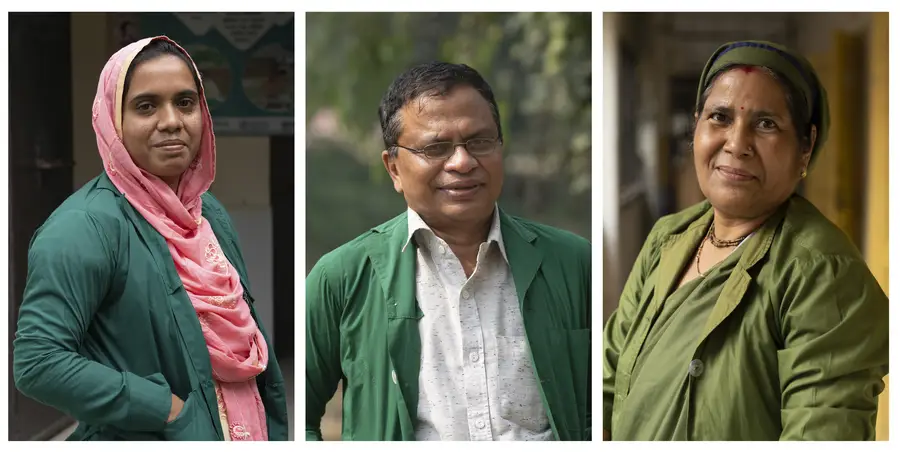
Community health workers (pictured left to right) Alpana Akter, Golam Alam, and Rita Rani Saha are on the front lines of providing quality care for patients suffering from lymphedema in Bangladesh. Photo Credit: RTI International/ Abir Abdullah
Indeed, thousands of health care providers have been trained and stand ready to support the country as it enters a new phase in ensuring the health and well-being of all Bangladeshis.
The success has been driven by community health providers like Alpana Akter who, for the last decade, has conducted home visits and counseled patients at the Taluk Bani Nagar Community Clinic on lymphedema management. By providers like Golam Mohammed Shahjul Alam, who has spent years providing medicine and treatment to lymphedema patients at the Chini Para Community Clinic. And nurses like Rita Rani Saha, who provides lymphedema treatment to patients at the Patgram Health Complex and supervises other nurses who do the same.
The commitment, skill, and experience of health providers like these are what will carry Bangladesh forward.
Providing care beyond elimination
These health providers will be essential to provide care and pain management for those who have already been disfigured and disabled by LF.
Uddin is one of Alam’s patients. After visiting various clinics and hospitals looking for relief from his lymphedema symptoms, Uddin met with Alam at the Chini Para Community Clinic and learned how to care for his swollen legs, including preventing and managing secondary infections.
“I give [patients] advice regarding the proper care of the legs, show them different kinds of exercises, and help them washing, cleaning and putting cream into their legs to avoid infection,” Alam explained.
“I can work with full energy and can farm. It has a brought a huge change to my life and family,” Uddin said.
A future without the threat of LF in Bangladesh is closer than ever before. As LF-related disability becomes a rarity for new generations in Bangladesh, the country is making sure its health system leaves no one behind.
